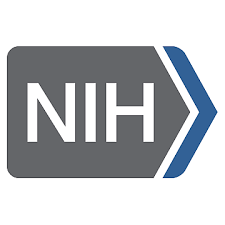Article
NIH Funds Study on Neonatal Opioid Withdrawal Treatment Options
Author(s):
Neonatal opioid withdrawal incidences have increased 300% since 1999, along with the rising use of opioids, making the risk for the condition more prevalent than ever.

The National Institutes of Health announced that it is funding a new study set on evaluating the possible treatment options for newborns with opioid withdrawal syndrome.
The study, Advancing Clinical Trials in Neonatal Opioid Withdrawal Syndrome (ACT NOW), is aimed at informing clinicians of the treatments for these infants, as US health care providers lack a standard of evidence-based therapies for the treatment of neonatal opioid withdrawal syndrome, despite a rising number of cases. Per research from the Centers for Disease Control and Prevention (CDC), the incidence of these cases has increased almost 300% from 1999 to 2013.
“Public health and research communities cannot overlook the opioid epidemic’s effects on pregnant women and their infants,” Diana W Bianchi, MD, the director of the National Institute of Child Health and Human Development, the office funding the study, said in a statement. “ACT NOW will supplement research on opioids and pregnancy outcomes by addressing critical gaps on how best to treat and manage opioid withdrawal syndrome in newborns.”
Opioids, a widespread topic of controversy in medicine, were recently declared part of a nationwide epidemic by President Donald Trump. The prescription totals for these drugs has increased fourfold since 1999, which has resulted in a higher risk for reproductive-age women to develop an opioid use disorder, and thus increased the risk of the use of these drugs while pregnant.
This research comes on the heels of the development of several drugs intended to help deter opioid use disorder, including a few that have been given priority indication by the US Food and Drug Administration (FDA). Recently, the increased use of opioids has led the FDA to change its stance on many drugs in the class.
ACT NOW will be used to assess both the risk and severity of neonatal opioid withdrawal syndrome, as well as develop research protocols for the condition. The study is only part of the required efforts to identify and implement the best options for treating the condition, according to the NIH.
The study will feature collaboration between the NICHD’s Neonatal Research Network and the NIH’s Office of the Director’s Environmental Influences on Child Health Outcomes (ECHO) program. ECHO includes the IDeA (Institutional Development Award) States Pediatric Clinical Trials Network, which has a focus on rural and underserved communities in medicine, many of which purportedly have a higher incidence of neonatal opioid withdrawal syndrome.
“This project will allow researchers to evaluate the impact of neonatal opioid withdrawal syndrome across the country and to develop a multi-site clinical trial in areas hit hard by the opioid crisis,” Matthew W. Gillman, MD, ECHO director, said.





